
For anyone interested in domain trading, choosing the right marketplace is essential. Each platform comes with its own advantages, fees, and audience reach, so knowing where to list your domains can make all the difference. This article cuts straight to the practical details, highlighting the top 5 marketplaces for buying and selling domains and breaking down what each platform offers so you can make an informed choice. If you’re looking to boost your trading game, the insights here will help you get started without getting bogged down in complex details.
And for a complete guide on how to approach domain trading as a whole—check out our article “How to Buy and Sell Domain Names for Maximum Profit: A Step-by-Step Guide“
Domain trading has grown into a real opportunity, attracting people from all walks of life who see the potential in a well-chosen web address. But with so many places to buy and sell, it can be overwhelming to know where to begin. Some platforms are built for quick flips, others are ideal for selling premium domains, and some offer extensive tools to reach global buyers.
This guide gets right to the point, exploring the best marketplaces that give you the tools and visibility you need to succeed. Each of these top five platforms has its own unique benefits, from reaching an international audience to providing streamlined listing options. Whether you’re aiming to sell a handful of names or manage a larger portfolio, these platforms have something special to offer. Let’s dive into where you can start listing your domains and get the results you’re looking for.
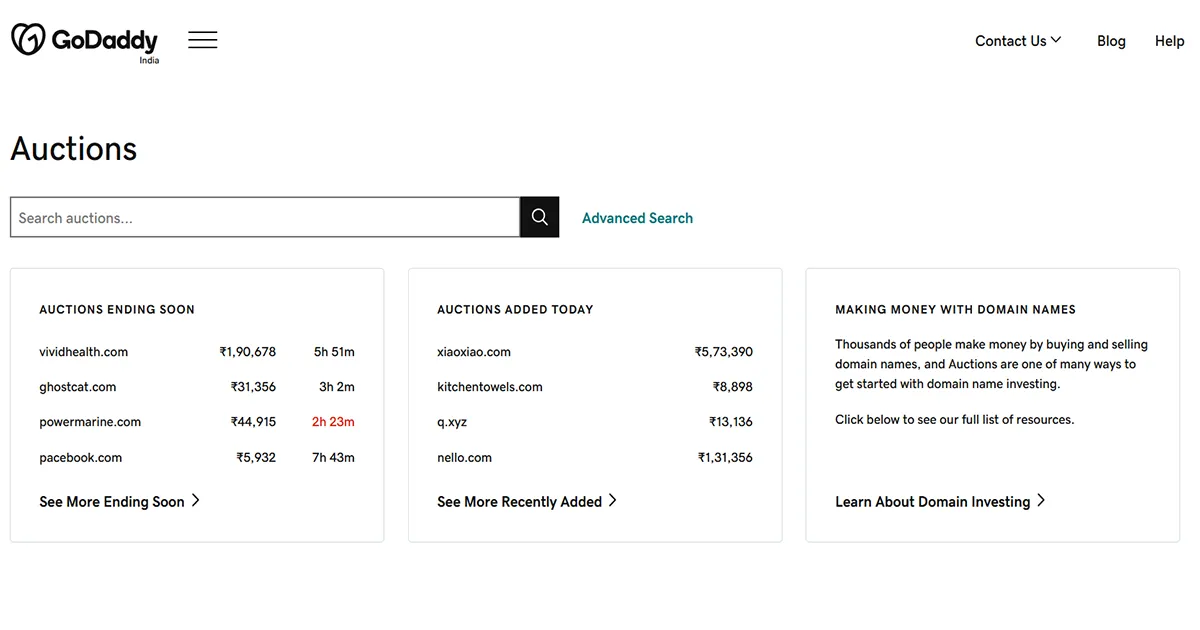
GoDaddy Auctions is one of the most recognized and widely used marketplaces for domain trading. With a strong brand presence and a vast customer base, GoDaddy offers a simple, well-organized platform that makes it easy for both new and experienced traders to buy and sell domains.
Advantages:
Drawbacks:
GoDaddy Auctions remains a solid choice for anyone looking for a dependable platform with strong reach and straightforward options, especially if you’re interested in auction-style selling.
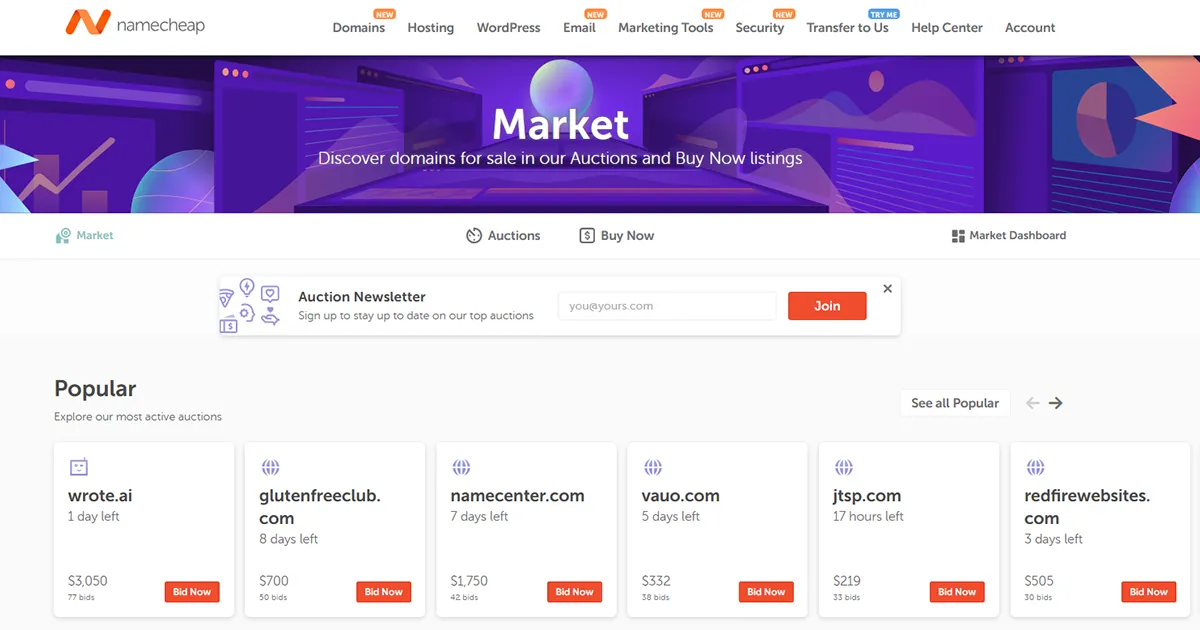
Namecheap’s marketplace is a straightforward and budget-friendly option, making it especially appealing for sellers looking to keep costs low. The platform is well-suited for those who want an easy process without extensive fees, and it serves as a great entry point for beginners in domain trading.
Advantages:
Drawbacks:
If you’re looking for a low-cost, straightforward platform to sell domains without complex options, Namecheap Marketplace is a practical choice that simplifies the selling process.
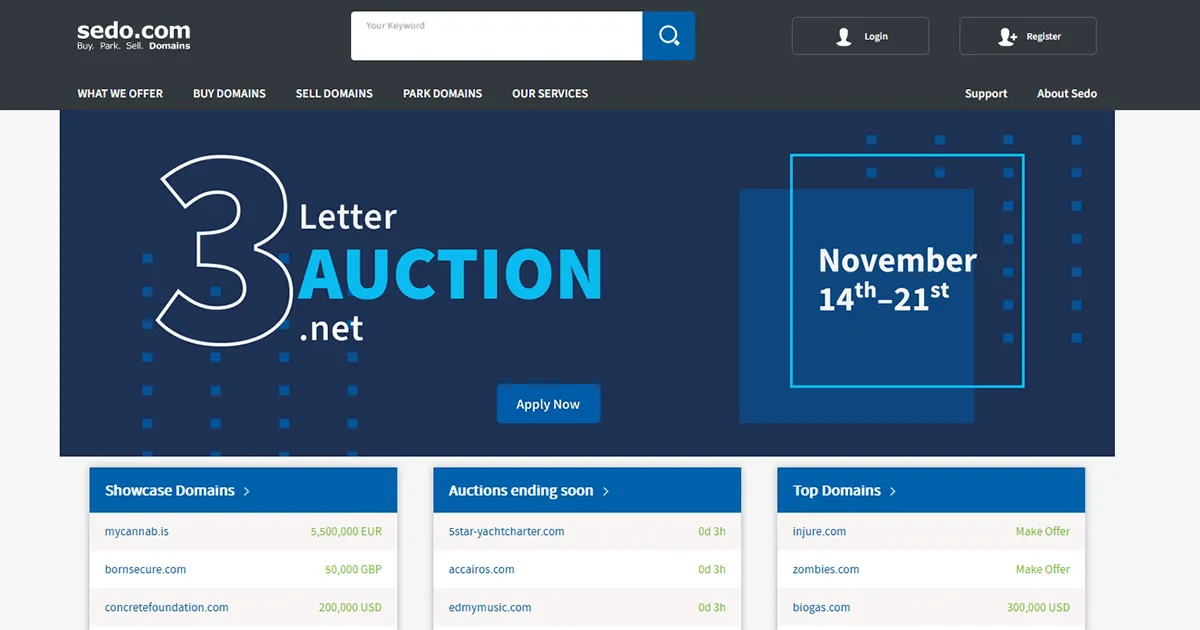
Sedo is one of the most globally recognized domain marketplaces, offering extensive tools and features to help sellers maximize their domain’s visibility. With options for premium listings and a strong presence across international markets, Sedo is ideal for sellers targeting a wide, global audience.
Advantages:
Drawbacks:
For those looking to reach a diverse, international audience with support for high-value domains, Sedo provides the tools and visibility needed to tap into a global market.
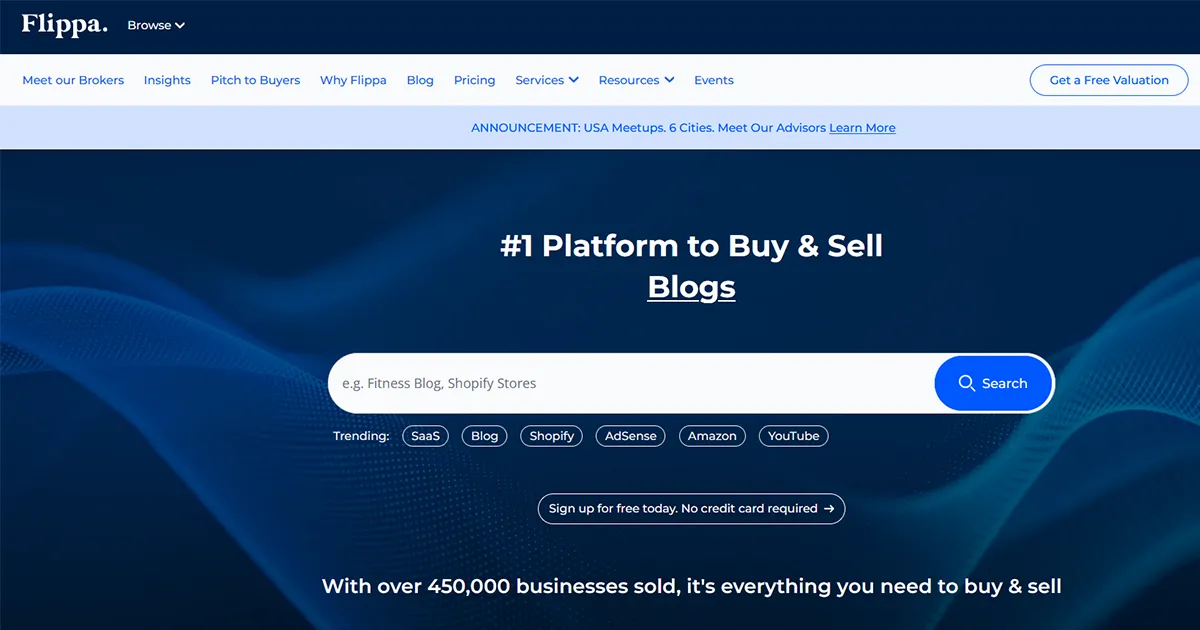
Flippa is a versatile marketplace known for offering a wide range of digital assets, including domains, websites, and apps. Its audience is particularly interested in digital investments, making it an ideal platform for those with branded or business-related domains.
Advantages:
Drawbacks:
Flippa is a smart choice for sellers with branded or premium domains, or those looking to sell alongside other digital assets to a buyer base interested in online investments.
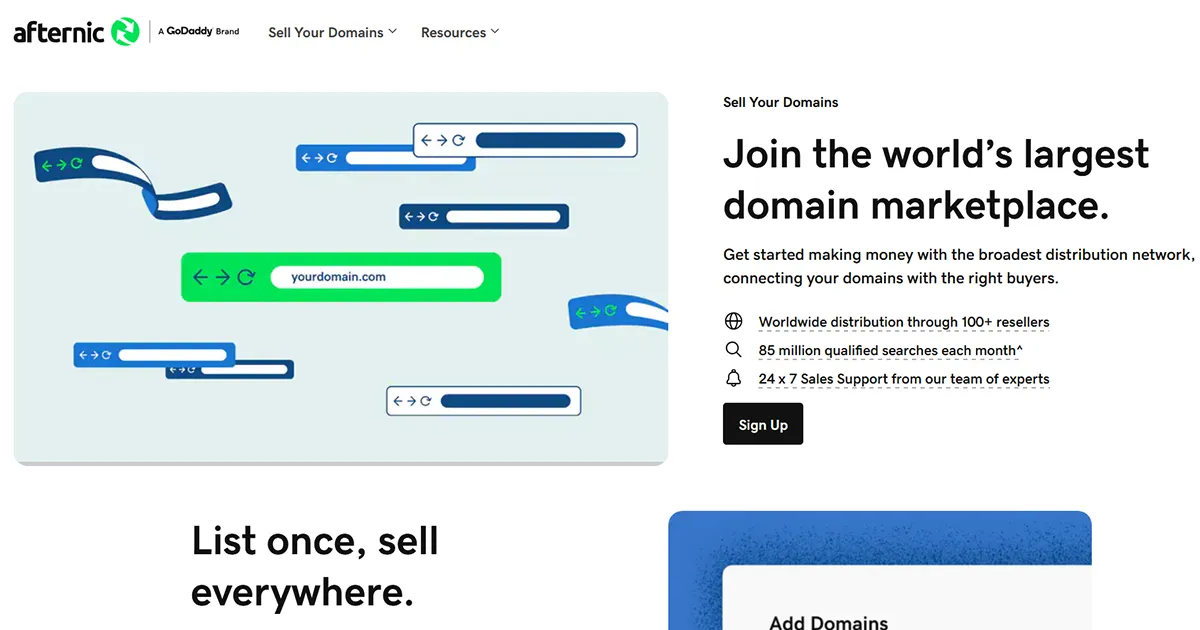
Afternic stands out for its widespread network of registrar partnerships, offering sellers the chance to list domains with extensive visibility across multiple platforms. As a GoDaddy-owned company, Afternic is especially convenient for those who want a simple, far-reaching option without needing to actively promote each listing.
Advantages:
Drawbacks:
For sellers seeking a no-fuss listing process and high visibility across various registrars, Afternic is a reliable choice, offering an expansive network and security without the need for constant listing management.
Choosing the right platform to buy and sell domains can be a game-changer, especially when each marketplace offers something unique. From the simplicity of Namecheap’s “Buy It Now” options to the extensive reach of Afternic’s registrar network, knowing the strengths and limitations of each marketplace can help you maximize profits and streamline the trading process. Here’s a comparison table to help you decide which platform aligns best with your goals.
| Marketplace | Best For | Listing Options | Fees | Exposure Level |
|---|---|---|---|---|
| GoDaddy Auctions | Auctions, Beginner-Friendly | Auction, Buy It Now | Listing + Commission | High |
| Namecheap Marketplace | Low Fees, Simple Listings | Buy It Now | Minimal | Moderate |
| Sedo | Global Reach, High-Value Domains | Buy It Now, Premium Listing | Listing + Commission | High (Global) |
| Flippa | Digital Assets, High-Value Domains | Auction, Buy It Now | Higher-End | High (Business-Oriented) |
| Afternic | High Visibility, Low Maintenance | Buy It Now | Listing + Commission | Very High (Registrar-Linked) |
Finding the right marketplace to buy and sell domains is about aligning your strategy with a platform that matches your needs. Whether it’s GoDaddy Auctions for a competitive auction environment, Namecheap for a beginner-friendly approach, Sedo for international reach, Flippa for high-value digital assets, or Afternic for broad visibility, each marketplace provides unique tools to make your domain trading experience successful.
The key to maximizing your domain trading potential is aligning the marketplace with your specific goals, whether that’s reaching a wider audience, keeping costs low, or tapping into premium buyers. By understanding what each platform offers, you can choose the one that best fits your needs and build a profitable trading strategy.
Share with like-minded people!
Lorem Ipsum is simply dumy text of the printing typesetting industry lorem.

Discover the essentials of personal loans—how they work, their benefits, potential risks, and smart borrowing strategies to meet your financial goals effectively.

Explore a detailed guide on different types of loans, from personal and home loans to green loans and debt consolidation options. Learn the benefits and risks of each type to make an informed decision.

Cash vs. Credit: Discover the best times to use each for maximum financial benefits. Learn strategies for balancing cash and credit to boost wealth, avoid debt, and make smarter financial choices.